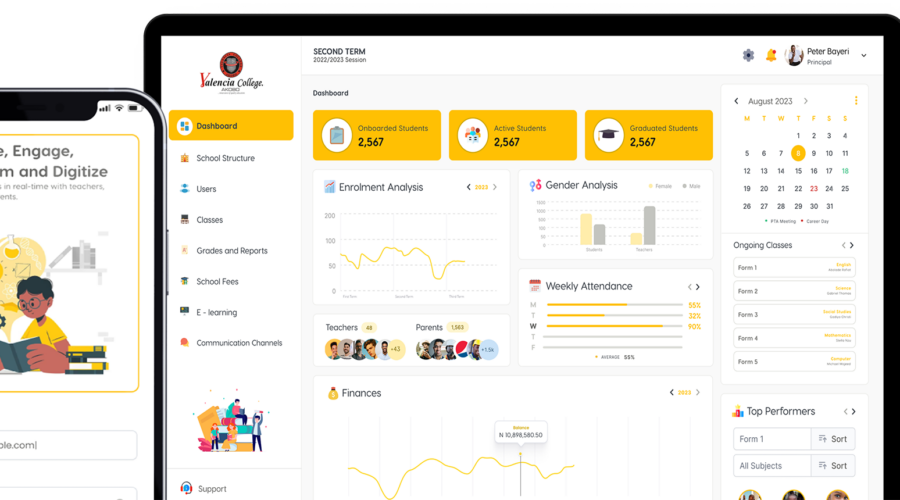How to Excel in a New Academic Session
It’s important to discuss how to excel in a new academic session after the excitement of the students about moving to another level/class. The new classes, new teachers, and new environment feel fresh, and the excitement that graduation day is closer is promising. Students are eager to embrace the change, set new goals, and push themselves to achieve more than they did last term.
But amid all that enthusiasm, it’s important to pause and remember that for a solid & excellent academic result, planning is the fundamental thing and also the adage of when you fail to plan, you plan to fail is very real. The beginning of a new academic session is not just about new textbooks and timetables; it’s about laying the foundation for success. The ultimate goal is to ace your exams, grow personally and academically, and move confidently to the next level with excellent results.
When this doesn’t happen, students risk falling short of their potential; sometimes even failing badly, which can affect their academic record and self-confidence. Excelling in a new academic session is not about luck. It’s about strategy, discipline, and intentional action.
In this article, we explore practical ways students can position themselves for success and consistently perform at their best throughout the term.
1. Create a Clear Plan:
Every success story starts with a plan. Without one, even the brightest students can lose focus and direction. When we talk about creating a plan, it’s not just writing down “I want to score 100 in all my courses”, though that’s a good start. A plan goes beyond grades; it covers everything you intend to achieve this session, including academics, personal growth, extracurricular activities, and even social goals.

For instance, your plan could look like this:
- Achieve at least 80% in all courses.
- Improve communication and public speaking skills.
- Make new friends and build healthy relationships.
- Attend workshops, seminars, or webinars that enhance knowledge.
- Read more books to support personal development.
- Participate in at least one extracurricular club or activity, etc.
2. Establish a Routine:
A plan without consistent action is just a wish. That’s why establishing a daily and weekly routine is essential. Routines help you manage time better, reduce stress, and ensure that nothing important slips through the cracks.
Your routine should cover time for lectures, study sessions, rest, meals, exercise, social activities, and self-improvement. For example:
- Morning: Revise notes or read ahead before classes.
- Afternoon: Attend classes and actively participate.
- Evening: Review what was taught, do assignments, and read additional materials.
- Weekends: Catch up on missed work, research, or projects and prepare for the week ahead.
Remember, a routine is only useful if you stick to it consistently. Be realistic when setting one up by avoiding overloading yourself and be flexible for unseen circumstances.
3. Connect With Past Seniors:
One of the smartest ways to excel is to learn from those who have walked the path before you. Past seniors, especially those who excelled, are valuable resources. They understand the challenges of your level, know the strategies that work, and can guide you on how to approach tough courses or demanding lecturers.
Here’s how to leverage their experience:
- Ask them for past questions and tips on how to tackle specific subjects.
- Seek advice on how they managed their time and handled academic pressure.
- Learn about opportunities like competitions, scholarships, or internships they might have discovered.
This doesn’t mean copying everything they did. It means adapting their wisdom to suit your own style and circumstances. Many top students owe part of their success to mentorship and guidance from those ahead of them.
4. Create a Friendly-Like Learning Environment:
The people around you can either fuel your growth or slow it down. That’s why creating a supportive, friendly learning environment matters. Surround yourself with people who share your goals, encourage you to do better, and challenge you positively.
A friendly learning environment also extends beyond friends. It includes how you interact with teachers, classmates, and even how you structure your study space. Be open to asking questions in class, contributing to discussions, and collaborating with others on projects.
When your learning environment is positive, you’re more motivated, more focused, and more likely to retain what you learn.

5. Stay Consistent With Your Routine:
Consistency is the backbone of success. It’s not enough to plan or start strong; you must keep going even when the excitement wears off. Many students begin the session with energy and motivation, but by midterm, they lose focus and start playing catch-up.
Here’s how to stay consistent:
- Break tasks into smaller steps so they feel achievable.
- Celebrate small wins to keep yourself motivated.
- Avoid procrastination: start assignments early.
- Hold yourself accountable or find a study partner to keep you on track.
Remember, small daily actions compound into big results. Even 30 minutes of revision daily is far more effective than cramming the night before an exam.
6. Develop Effective Study Techniques:
Studying harder isn’t always the solution, studying smarter is. Different subjects require different approaches, and different students learn in different ways. Experiment with techniques and find what works best for you. Some effective strategies include:
- Active recall: Test yourself regularly instead of just rereading notes.
- Spaced repetition: Review information at increasing intervals to boost memory.
- Mind mapping: Use diagrams to connect ideas visually.
- Group study: Discussing concepts with peers can deepen understanding.
Also, make sure your study sessions are distraction-free. Put your phone on silent, avoid multitasking, and focus fully for short, intense periods (like 25–30 minutes) with short breaks in between.
7. Seek Help Early:
Struggling with a topic or course is normal, but ignoring it is dangerous. The earlier you seek help, the easier it is to catch up. Reach out to your teachers, tutors, or classmates as soon as you notice a gap in your understanding.
Many students fail not because they’re not intelligent, but because they waited too long to ask for help. There’s no shame in needing support, in fact, it shows maturity and determination to succeed.

8. Balance Academics With Well-Being:
Excellence isn’t just about academics, it’s also about mental, emotional, and physical health. Burnout is real, and overloading yourself can harm your performance.
Make time for rest, exercise, hobbies, and social connections. Sleep well, at least 7–8 hours a night, because memory and concentration depend on it. Eat nourishing meals and stay hydrated. When your mind and body are healthy, learning becomes easier and more enjoyable.
9. Leverage Technology Wisely:
We live in a digital age, and students who use technology strategically often have an edge. Use educational platforms, apps, and tools to support your learning. For instance:
- Use a Learning Management System (LMS) like SchoolTry to track assignments, access resources, and stay organized.
- Use apps for flashcards, grammar checks, citation management, or time management.
- Follow educational pages and online communities to expand your knowledge beyond the classroom.
The key s moderation, use technology as a tool for growth, not a source of distraction.
10. Reflect and Adjust Regularly:
Success is a journey, not a one-time event. Throughout the session, review your progress. Are you meeting your targets? Are there areas where you’re falling behind? Reflection helps you see what’s working and what needs adjusting.
At the end of each month, do a quick review of your academic and personal goals. If something isn’t working, tweak your approach. Flexibility is a strength, the goal is progress, not perfection.
Conclusion
Excelling in a new academic session is within your reach, but it requires more than enthusiasm. It takes deliberate planning, disciplined habits, and a commitment to continuous improvement. From creating a clear plan and building a solid routine to seeking mentorship, maintaining balance, and leveraging technology, each step you take builds toward success.




